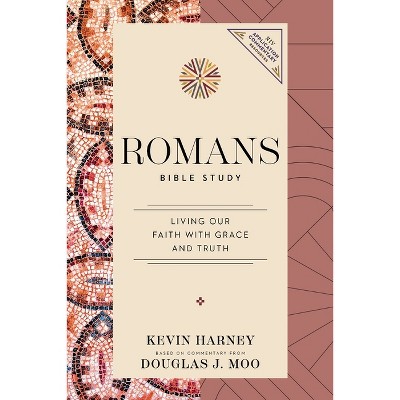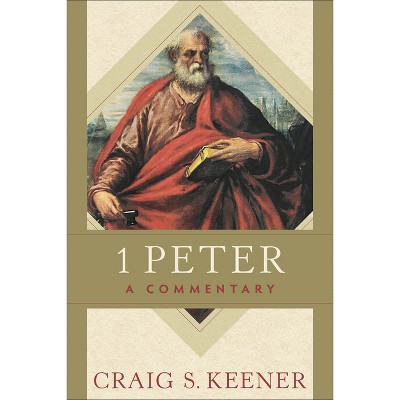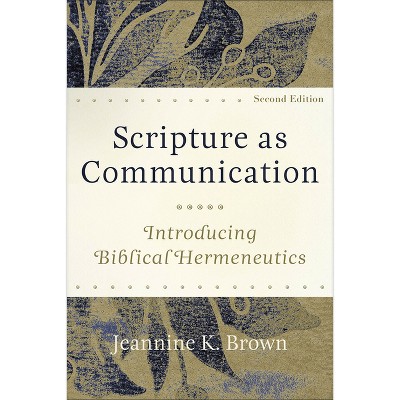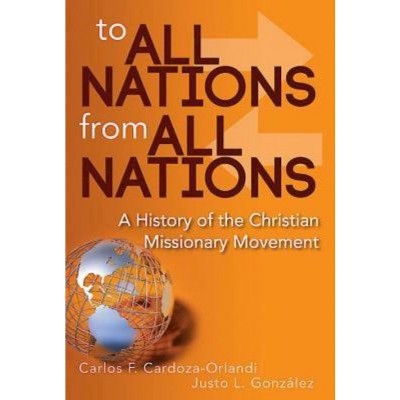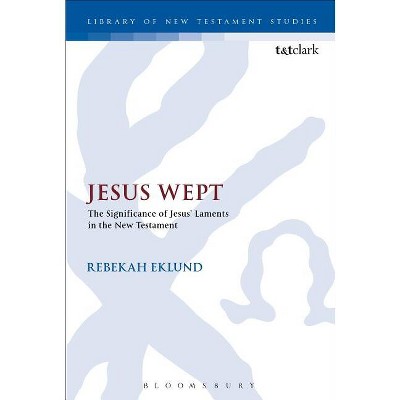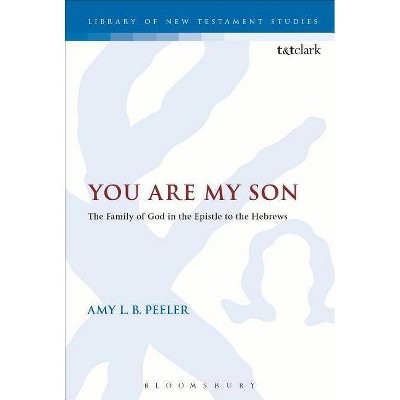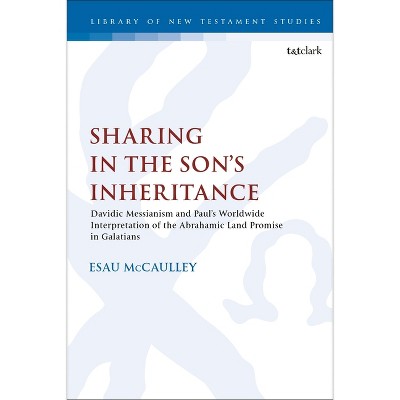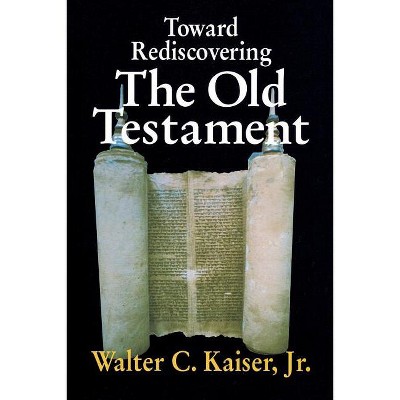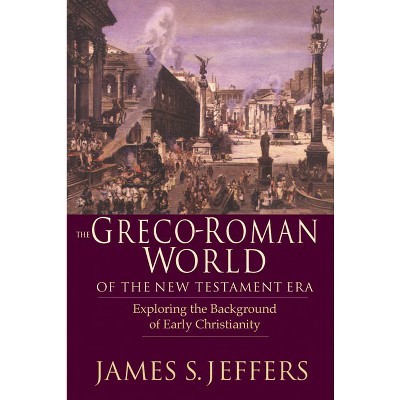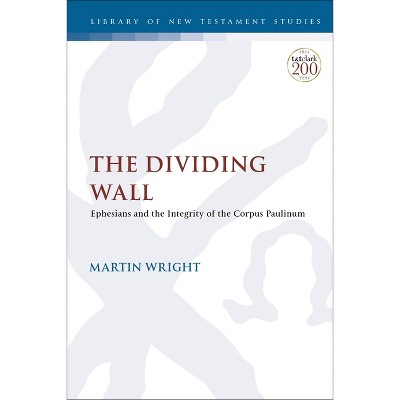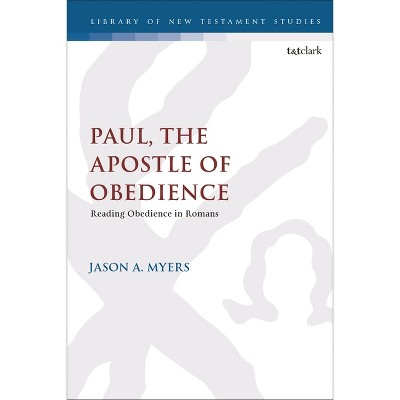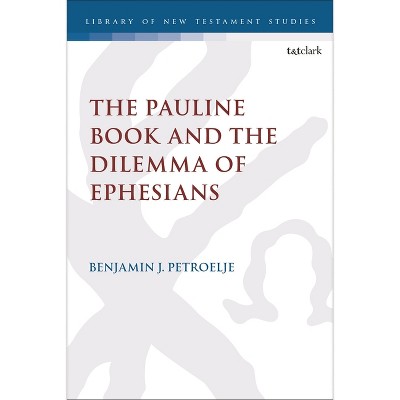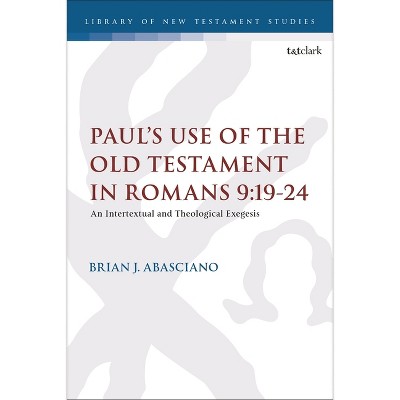Sponsored

The Paul-Apollos Relationship and Paul's Stance toward Greco-Roman Rhetoric - (Library of New Testament Studies) by Corin Mihaila (Paperback)
$46.95
In Stock
Eligible for registries and wish lists
Sponsored
About this item
Highlights
- Research into the social and rhetorical background of the Corinthian church, shows that the Corinthians were evaluating their leaders based on their rhetorical prowess, seeking to associate with those who would enhance their status and honour.
- Author(s): Corin Mihaila
- 272 Pages
- Religion + Beliefs, Biblical Studies
- Series Name: Library of New Testament Studies
Description
Book Synopsis
Research into the social and rhetorical background of the Corinthian church, shows that the Corinthians were evaluating their leaders based on their rhetorical prowess, seeking to associate with those who would enhance their status and honour. The coherence of Paul's argument in 1 Corinthians 1-4 is evaluated, particularly by showing how Paul's discourse of the cross and Sophia relate to the issue of the dissensions in the Corinthian ekklesia. Once demonstrated that there is a misunderstanding of wisdom amongst church leaders at the basis of the dissensions, a redefinition of the wisdom offered in Corinthians is required.In what could be considered the locus of Paul's theology of proclamation (i.e., 1 Corinthians 2:1-5), he rejects any employment of worldly wisdom in his proclamation of the cross for theological reasons and will not allow himself or other leaders to be drawn into this game of personality cult and honour enhancement.
Such conclusions then raise the question of the role played by Apollos' name in Paul's argument against dissensions. After a review of several possible views, it is concluded-based primarily on exegetical grounds and refusing to engage in hermeneutical speculations-that Paul had a congenial relationship with Apollos. If any distinction is drawn between the two, it was solely the Corinthians' fault, who viewed their preachers in competitive rather than complementary terms.
Review Quotes
'Specialists will find this book to be a valuable resource on the Corinthian correspondence.'
Theological Book Review
'The social background is usefully discussed and worth pondering regardless of how friendly Paul may or may not have been with Apollos. After a very short introduction theliterary and thematic unity of these four chapters is established in a long opening chapter, their social and rhetorical background in a second. Chapter 3 discusses Paul and sophistic rhetoric, as refected in these chapters and chapter 4 Apollos 'function' in these four chapters. The breif summary and conclusions include 'homiletical implications'. The close attention to a very important part of the Pauline corpus makes this a monograph which many students of the New Testament could read with profit.' Robert Morgan, Linacre College, Oxford
"This exegetical and socio-historical investigation of 1 Corinthians 1-4 seeks to determine the relationship between Paul and Apollos in the light of Paul's stance toward Greco-Roman rhetoric. After a seven-page introduction, it shows the literary and thematic unity of 1 Corinthians 1-4, considers the kind of wisdom that the Corinthians appreciated, treats Paul's stance toward rhetorical eloquence, and raises the question of Apollos' function in the argument. Mihaila contends that when one takes Paul's argument and mention of Apollos at face value, it appears that Apollos and Paul shared a harmonious relationship in ministry, though Apollos was most likely an independent missionary. Thus the entire fault in the dissension lay with the Conrinthian Christians. -New Testament Abstracts, Vol. 54
Dimensions (Overall): 9.21 Inches (H) x 6.14 Inches (W) x .58 Inches (D)
Weight: .85 Pounds
Suggested Age: 22 Years and Up
Number of Pages: 272
Genre: Religion + Beliefs
Sub-Genre: Biblical Studies
Series Title: Library of New Testament Studies
Publisher: Bloomsbury Publishing PLC
Theme: New Testament, Paul's Letters
Format: Paperback
Author: Corin Mihaila
Language: English
Street Date: July 25, 2019
TCIN: 1001655025
UPC: 9780567689702
Item Number (DPCI): 247-36-7840
Origin: Made in the USA or Imported
If the item details aren’t accurate or complete, we want to know about it.
Shipping details
Estimated ship dimensions: 0.58 inches length x 6.14 inches width x 9.21 inches height
Estimated ship weight: 0.85 pounds
We regret that this item cannot be shipped to PO Boxes.
This item cannot be shipped to the following locations: American Samoa (see also separate entry under AS), Guam (see also separate entry under GU), Northern Mariana Islands, Puerto Rico (see also separate entry under PR), United States Minor Outlying Islands, Virgin Islands, U.S., APO/FPO
Return details
This item can be returned to any Target store or Target.com.
This item must be returned within 90 days of the date it was purchased in store, shipped, delivered by a Shipt shopper, or made ready for pickup.
See the return policy for complete information.
